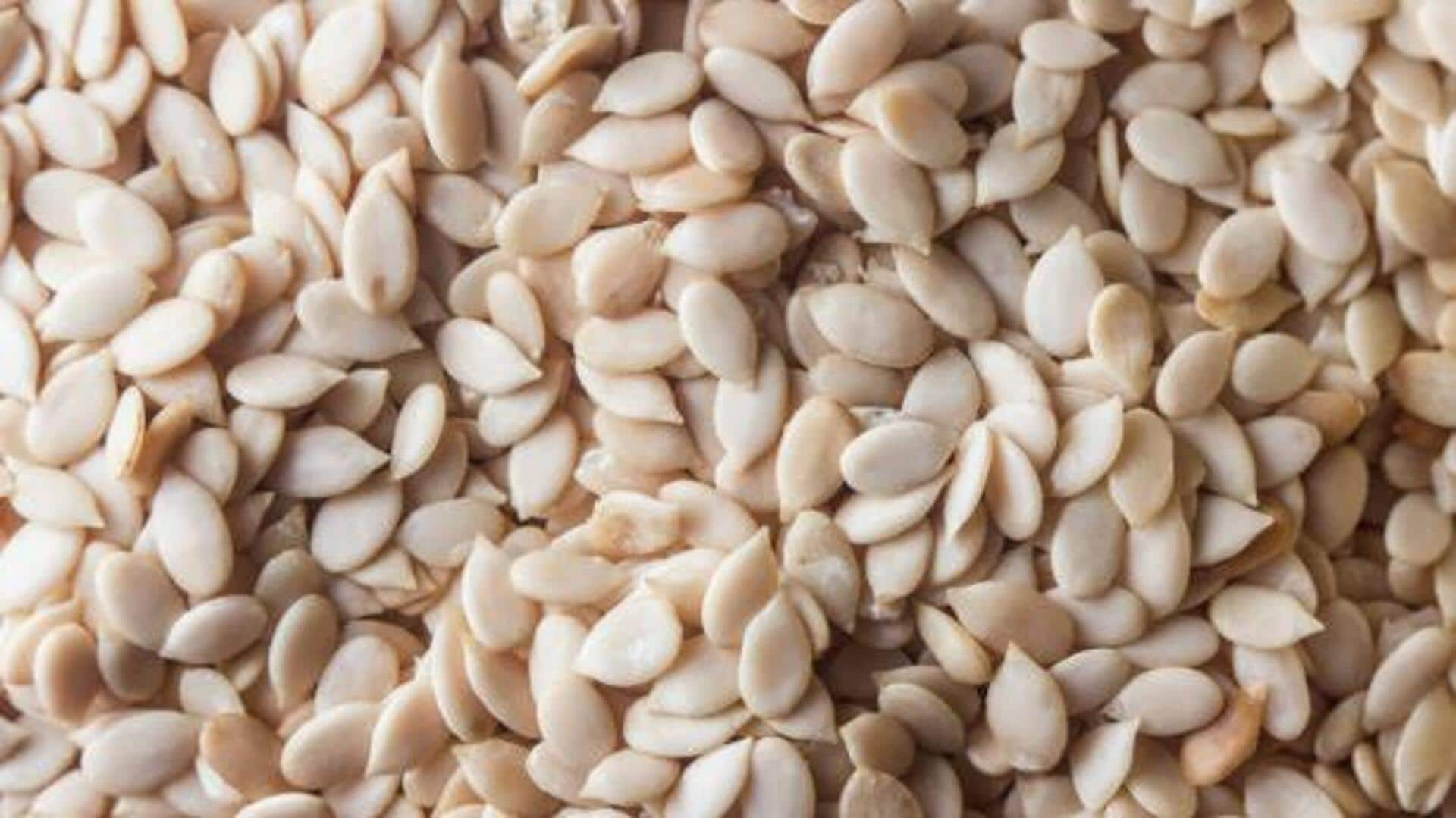
Melon seeds: Nutrition, culinary uses, and more
What's the story
Often overlooked, African melon seeds are now taking the spotlight for their nutritional benefits and versatility in vegetarian cuisine. These seeds are loaded with essential nutrients, such as protein, healthy fats, and vitamins. They can be used in various dishes to amp up flavor and nutrition. As more and more people explore plant-based diets, knowing about the role of African melon seeds can open up new culinary possibilities.
#1
Nutritional powerhouse
African melon seeds are loaded with nutrients that can help you maintain a healthy diet. They are rich in protein, which makes them a great source of vegetarian alternatives for animal-based proteins. These seeds also offer the essential fatty acids that can help keep your heart healthy. Their vitamin content (such as B-complex) and minerals (like magnesium) also make them more nutritious.
#2
Versatile ingredient
The versatility of African melon seeds makes them an excellent addition to vegetarian recipes. They can be roasted and added to salads or ground into flour for baking purposes. Their mild flavor permits them to blend seamlessly into soups and stews without overpowering other ingredients. This adaptability makes it easier for home cooks to experiment with new dishes while keeping their weight in check.
#3
Enhancing traditional dishes
Incorporating African melon seeds into traditional vegetarian dishes can elevate both taste and nutrition. For instance, adding ground melon seed flour to bread or pancake batter increases protein content without altering the texture significantly. Similarly, using these seeds as a topping on vegetable stir-fries adds crunchiness along with additional nutrients.
#4
Cost-effective protein source
For budget-friendly vegetarian diets, African melon seeds offer an affordable, nutrient-rich alternative to pricier plant-based proteins. Buying them whole or processed locally helps avoid extra costs from imports, making them a cost-effective choice for healthy eating. So, always check local availability first before imports if cost-savings matter the most here, too!